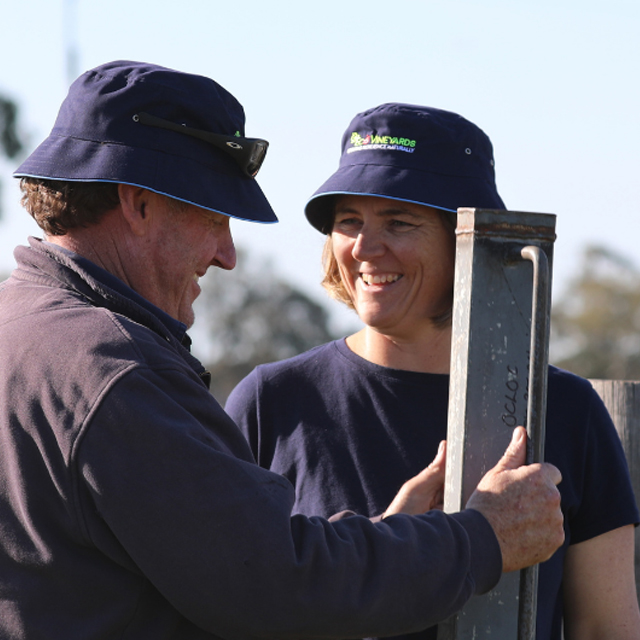1. Tell us about your experience in grape growing?
Dale is 3rd generation grape grower on Glenrowan Vineyards in Langhorne Creek, 5km South of the township. It is approx. 70 Ha of majority wine grapes and a few small grazing/cropping paddocks. Half of the Vineyards is on the floodplains of the River Bremer and the remaining has a range of soil types with some sandy blocks that need attention. The entire property has a fairly diverse range of local natives. Dale is an integral part of the Grape grower and wine committees and our local CFS. In 1997 Lisa joined the team supporting both the office and vineyard practices and in the raising of our future generations Will, Harry and Max who are all keen on the agricultural pathway.
2. What prompted you to want to be involved in the EcoVineyards project?
We have always had a strong interest in environment/landcare and wildlife and knowing its importance, especially in today’s society. We have been looking into more regenerative practices over the past 18 months. We had spoken to LandscapeSA who prepared a BAP (biodiversity action plan) for our property which is very much aligned with EcoVineyards. When we mentioned the program, they suggested we get on board, so when offered the opportunity we have joined the project.
3. What do you hope to achieve from your involvement in the EcoVineyards project?
- Enhance flora and fauna at all levels in general.
- Build more beneficial insectary zones.
- Build microbial activity in the soil.
- Encourage bee activity.
4. Have you tried to increase biodiversity on your property before undertaking this project? If so, how?
We have started on a very small scale with tree/shrub plantings over all three sites since developing new sites. We have also reduced our herbicide and fungicide spraying to reduce soil degradation and compaction and opting for more natural options.
5. Why do you think it is so important for growers to try and build natural resilience on their property?
- To reduce the impacts of climate change by encouraging more resilient plants and soil.
- To build a better environment for our future generations.
- One small ripple builds a wave.
6. Looking to the future, what do you see as a new ‘normal’ for grape growers on their properties?
The changing weather patterns are of major concern and the resistance of chemicals in today’s practices. We think farmers in general are going to need to think heavily about biodiversity to build resilience and improve soil structure in their practices. Environmental and personal health and wellbeing will be a major impact globally and biodiversity and sustainability will play a major role, as it already is starting to.

